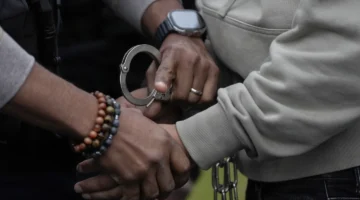Reopening blueprint approved for Florida public universities
MIAMI (AP) — Students could be returning to Florida’s 12 public universities this fall after campuses were shut down this past spring because of the coronavirus pandemic.
The Florida Board of Governors unanimously approved a blueprint for reopening campuses for the fall semester during a teleconference meeting Thursday. The blueprint is meant to guide the state universities in developing individualized plans for reopening in light of the challenges posed by COVID-19.
“We really must recognize that each university is different, and therefore each must present a plan that is best suited for its unique circumstances and characteristics,” Board Chairman Sydney Kitson said. “Using the blueprint for reopening campuses, we will be stronger and more successful in achieving our goals and focusing on the health and welfare of our students, faculty, staff, vendors, volunteers and visitors.”
The blueprint was developed over the past month by a task force of university presidents, along with other school officials and emergency managers, Kitson said. Each school must present its own specific plan to the Board of Governors next month.
Officials don’t expect classes to resume exactly as they did before the coronavirus shut down. The blueprint calls for universities to explore hybrid combinations of face-to-face and online instruction. Class sizes and classroom densities should meet social distancing guidelines, and universities are encouraged to consider varied course scheduling.
“We are hoping that we can tailor our academic delivery in such a way that we’re meeting the student where the student wants to be met,” State University System of Florida Chancellor Marshall Criser said.
Each university’s plan should focus on the health and welfare of all students, staff and visitors, according to the blueprint. Schools should be prepared to implement social distancing guidelines set by the Centers for Disease Control and Prevention and the use of face coverings and hand sanitizers. Universities should have plans for intercollegiate athletics and other student extracurricular activities, including Greek organizations, student clubs, intramural sports and social gatherings.
University leaders should also be prepared to work with their surrounding communities. Criser pointed out that 72% of the system’s 420,000 students are attending a school in a different county from their primary residence, meaning hundreds of thousands of people would be moving from one health environment to another.
Each university will need a COVID-19 testing plan, according to the blueprint. The plan should specifically address testing individuals coming to the campus from areas with significant community transmission. The plan should also include a process for health care workers to rapidly respond to “hot spots” on the campus.
Universities are expected to work with the Florida Department of Health on contact tracing and surveillance, the blueprint said. Schools must have suitable facilities for isolating students who live on campus and test positive for coronavirus until they are no longer infectious.
Several members of United Faculty of Florida, a faculty union, spoke during the meeting’s public input time. UFF President Karen Morian urged the Board of Governors to lobby the state’s U.S. senators to support federal relief for universities and to not cut previous funding, which might make Florida ineligible for that federal relief.
___
Follow AP coverage of the virus outbreak at https://apnews.com/VirusOutbreak and https://apnews.com/UnderstandingtheOutbreak






No Comment